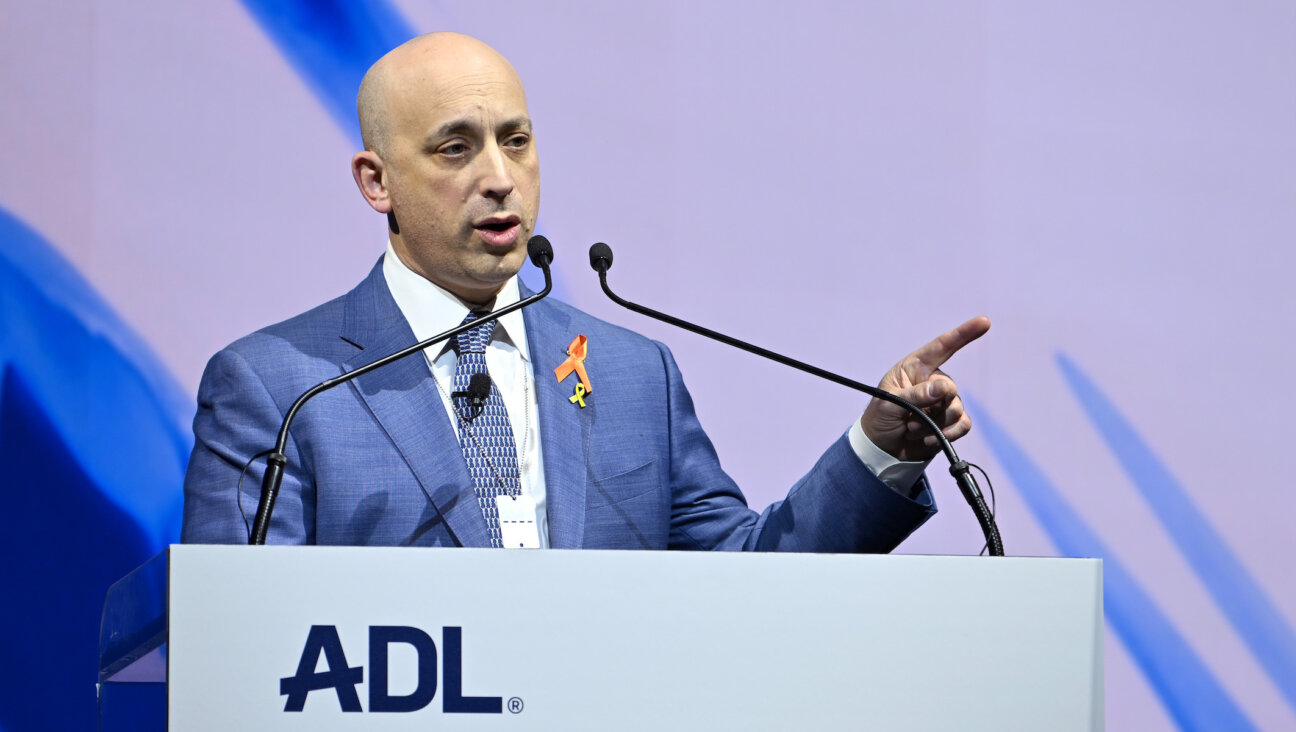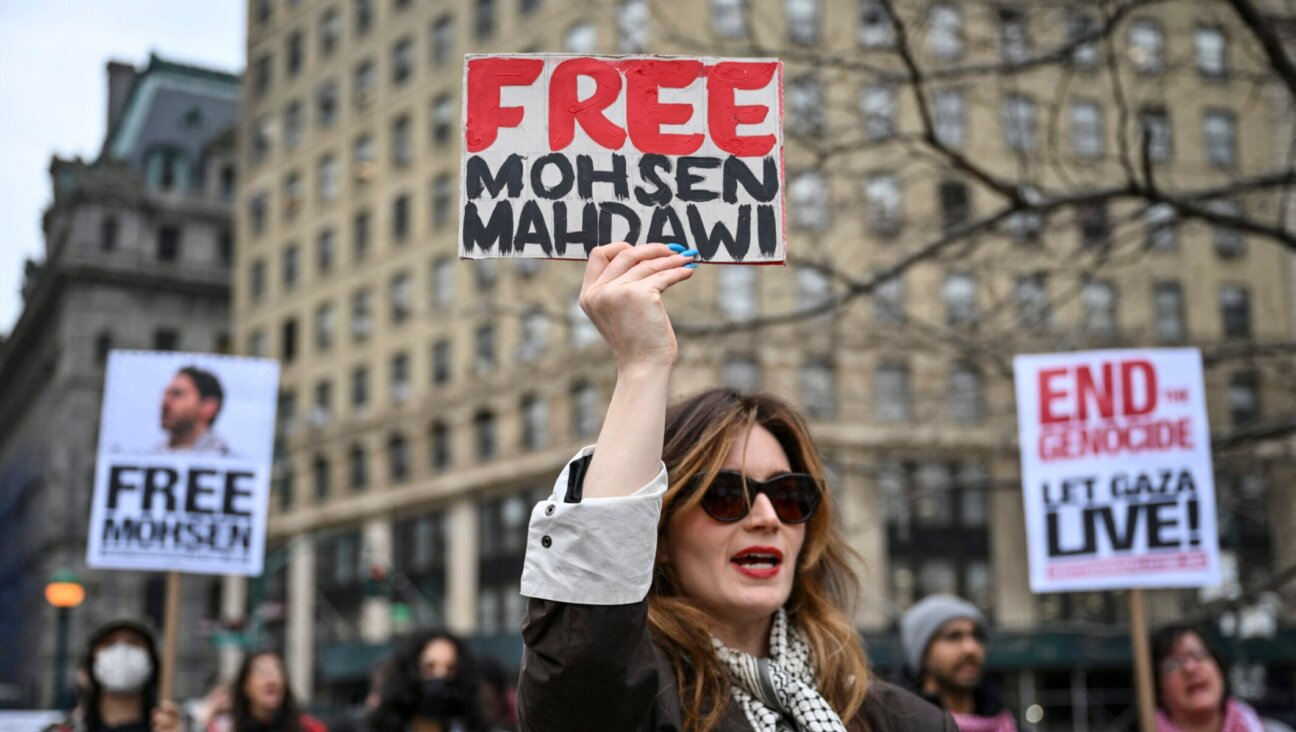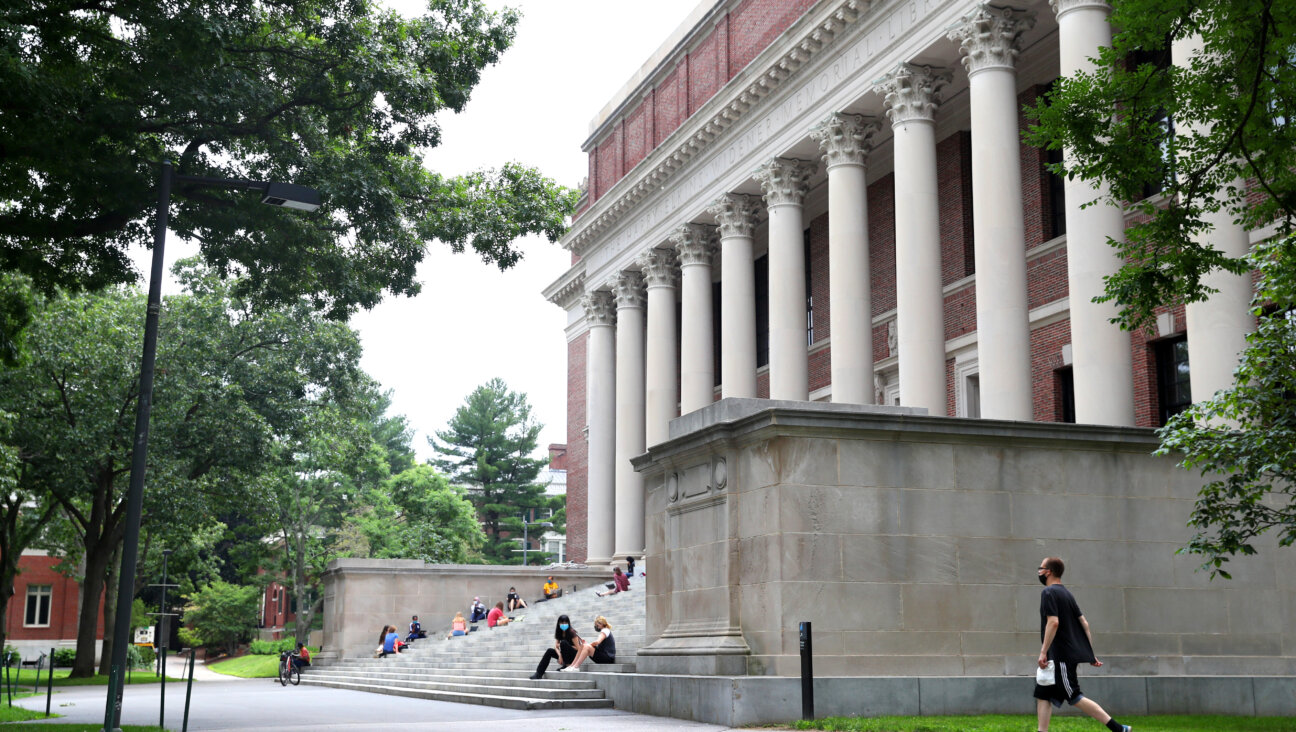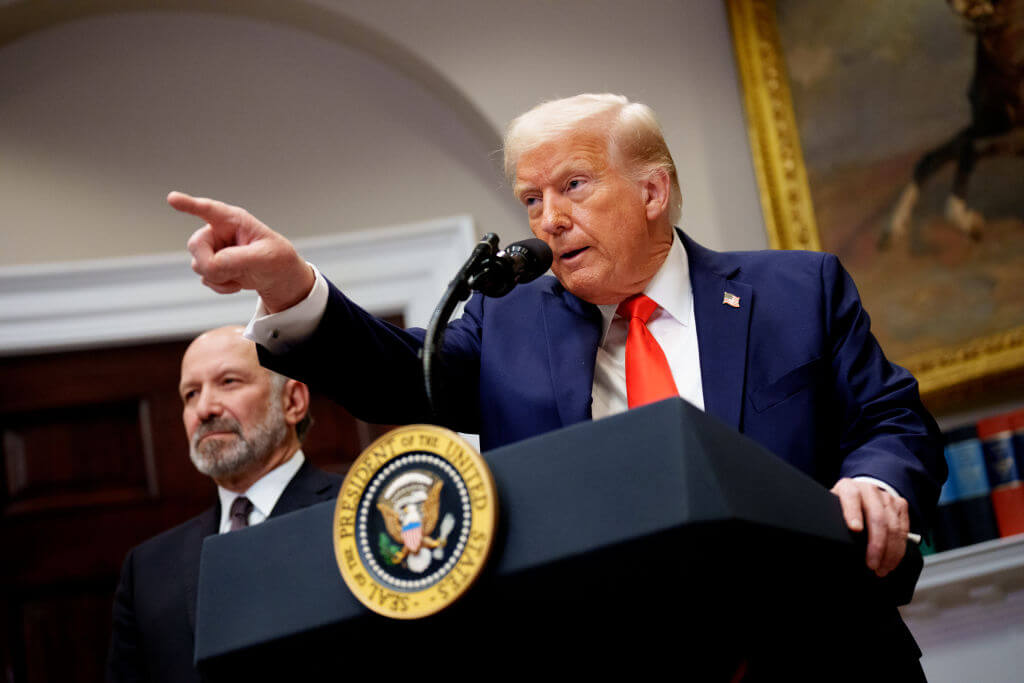Palestinians, Israelis To Seek Additional American Aid
WASHINGTON — As President Bush plans to ask Congress for additional aid for the Palestinian Authority, Israel is preparing the ground for its own supplemental request to help underwrite its planned withdrawal from Gaza and parts of the West Bank.
Israel will ask for funds to establish a series of new crossing points along its border with Palestinian areas, and to cover the cost of redeploying troops from Gaza and parts of the West Bank. Israel also will ask for financial assistance to develop the Negev and the Galilee — where Jewish settlers from Gaza and Northern West Bank would be encouraged to resettle, Israeli and American sources confirmed. Later, Israel also might ask for aid to help build railroad infrastructure that would pass through Israeli territory, to help the Palestinians import and export via Israeli seaports, sources said.
Secretary of State Condoleezza Rice is expected to receive requests for assistance when she visits Jerusalem next week. Preliminary discussions of these issues took place earlier this week, when Israeli Prime Minister Sharon’s top political adviser, Dov Weissglass, met with Rice in Washington. The newly sworn-in top diplomat, on her first trip overseas as secretary of state, is also expected to promise the P.A. some $200 million in additional direct aid, Bush administration officials said.
The president indicated last week that he intends to ask Congress for that money when he files his request for a supplemental budget to fund American military operations in Iraq and Afghanistan. Several members of Congress on both sides of the aisle told the Forward that although many lawmakers oppose an increase in aid to the P.A., the funds are certain to be approved. “Bills that fund the troops in the field generally pass,” said Rep. Anthony Wiener, a New York Democrat, who vehemently opposed direct aid to the P.A.
The government of Israel has not yet filed an official request for additional American aid, but Israeli officials this week said that they would do so soon. Israel’s deputy chief of staff, General Dan Halutz, told a Knesset committee this week that the Gaza redeployment cost for the military would be about $430 million, mainly connected to the repositioning of troops and facilities that are removed from Gaza.
At the moment, Israel is seeking about $180 million from America to help fund what Israeli officials are describing as a “revolutionary” transformation of the crossing points that connect Israel to the West Bank and Gaza. The overall projected cost of the venture is $430 million, of which the Israeli government will budget $250 million, as Israel’s ambassador to Washington Daniel Ayalon told the Israeli business daily Globes last week.
Israel is planning to build a network of high-tech terminals to facilitate safe and speedy passage of both people and goods between Israel and the Palestinian territories. The terminals, Israeli officials said, would be staffed by civilians in order to prevent friction between Palestinians and Israeli soldiers. They will be equipped with cutting-edge security devices that would ensure minimal intrusion while searching people and goods, yet they would provide maximum security, Israeli diplomats said.
An official Israeli delegation, headed by former brigadier general Baruch Spiegel, briefed American officials this week on the planned crossing points. Spiegel, who coordinates Israel’s efforts to minimize friction with the Palestinian population along the security fence and at roadblocks, also briefed officials with American Jewish groups and senior World Bank officials. The World Bank “has indicated that it is willing to play a role, whether financially or in technical assistance,” in upgrading the border crossings, said Christian Poortman, World Bank vice president for the Middle East and North Africa. The crossings, he said, should fit into a policy that will allow them to function as a tool to encourage Palestinian economic recovery.
Poortman, chief author of a recent World Bank report on the requirements for Palestinian economic recovery, said in an interview with the Forward that reciprocal measures taken by Israel and the P.A. in the past month have been “remarkable.” Particularly, he noted, Israelis and Palestinians are now engaged in direct talks with the intention of accommodating each others’ needs. For example, Poortman said, Israelis and Palestinians have jointly identified several potential points for future border-crossing terminals.
Despite the encouraging first steps, Poortman said, Israel needs to do more to lift roadblocks on West Bank roads and to find a way to allow the movement of people and goods between the West Bank and Gaza. On this count, Poortman, as well as American officials, said they are encouraged by Israeli plans to transfer large parts of the West Bank to Palestinian security forces.
American officials said recently that they are also intrigued by an Israeli idea to connect the West Bank to Gaza through a railway. The proposed railway would also grant Palestinians access to the Ashdod seaport, south of Tel Aviv.
This week underscored the close relationship between security cooperation and prospects for economic recovery. As Israel’s minister of defense, Shaul Mofaz, met with top Palestinian security officials this week to coordinate security arrangements, top Israeli and Palestinian officials met at the annual international economic summit in Davos, Switzerland, to discuss the economic fruit they hope to reap from the drop in violence for which both sides are wishing. Israel’s vice premier, Shimon Peres, discussed improvements in border crossings with Palestinian Finance Minister Salam Fayyad, and urged European governments to invest in the Palestinian territories. Talks in Davos also were held between Israel’s Industry and Trade minister, Ehud Olmert, and Palestinian Economy Minister Maher al-Masri, and between Israeli Foreign Minister Silvan Shalom and his Palestinian counterpart, Nabil Sha’th.
The Forward is free to read, but it isn’t free to produce

I hope you appreciated this article. Before you go, I’d like to ask you to please support the Forward.
Now more than ever, American Jews need independent news they can trust, with reporting driven by truth, not ideology. We serve you, not any ideological agenda.
At a time when other newsrooms are closing or cutting back, the Forward has removed its paywall and invested additional resources to report on the ground from Israel and around the U.S. on the impact of the war, rising antisemitism and polarized discourse.
This is a great time to support independent Jewish journalism you rely on. Make a Passover gift today!
— Rachel Fishman Feddersen, Publisher and CEO
Most Popular
- 1

Opinion My Jewish moms group ousted me because I work for J Street. Is this what communal life has come to?
- 2

News Student protesters being deported are not ‘martyrs and heroes,’ says former antisemitism envoy
- 3

News Who is Alan Garber, the Jewish Harvard president who stood up to Trump over antisemitism?
- 4

Fast Forward Suspected arsonist intended to beat Gov. Josh Shapiro with a sledgehammer, investigators say
In Case You Missed It
-

Culture ‘Shtisel’ star Sasson Gabay is happy to be back playing a complex haredi Orthodox Jew in ‘Kugel’
-

Fast Forward Noa Argamani, ADL’s Jonathan Greenblatt among over a dozen Jews on 2025 TIME 100 list
-

Fast Forward US claims Mohsen Mahdawi’s activism could ‘potentially undermine’ prospect of peace in Gaza
-

Opinion What Jewish university presidents say: Trump is exploiting campus antisemitism, not fighting it
-
Shop the Forward Store
100% of profits support our journalism
Republish This Story
Please read before republishing
We’re happy to make this story available to republish for free, unless it originated with JTA, Haaretz or another publication (as indicated on the article) and as long as you follow our guidelines.
You must comply with the following:
- Credit the Forward
- Retain our pixel
- Preserve our canonical link in Google search
- Add a noindex tag in Google search
See our full guidelines for more information, and this guide for detail about canonical URLs.
To republish, copy the HTML by clicking on the yellow button to the right; it includes our tracking pixel, all paragraph styles and hyperlinks, the author byline and credit to the Forward. It does not include images; to avoid copyright violations, you must add them manually, following our guidelines. Please email us at [email protected], subject line “republish,” with any questions or to let us know what stories you’re picking up.











